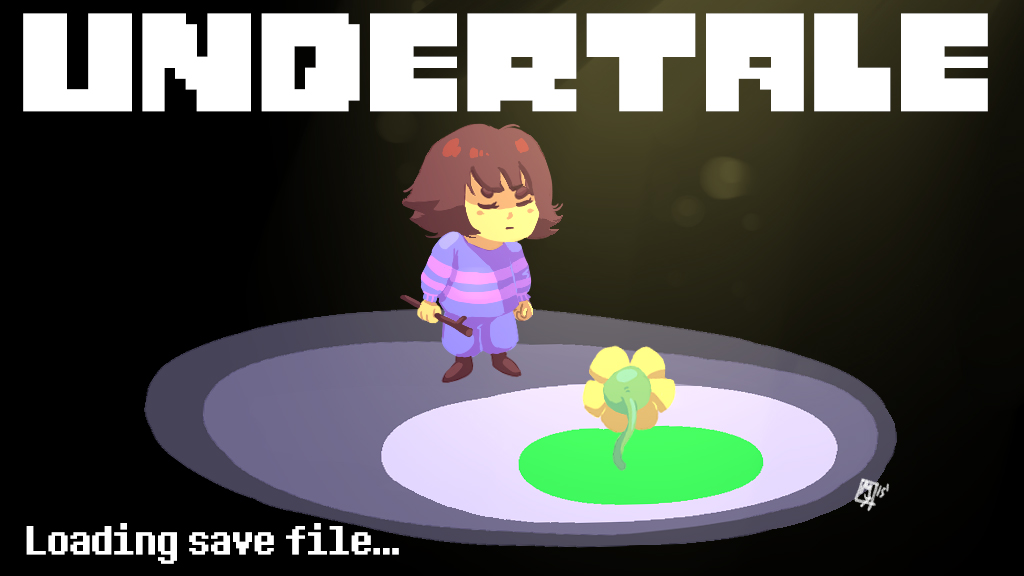"Undertale" and Permanent Consequences in Video Games
by Jake Krajewski | published Nov. 30th, 2015
"I know what you did."
Those are the first words that greet you if you kill the first boss of "Undertale," then reset your save file and spare them instead. When I first heard about "Undertale," I was worried it was being over-hyped. So many games recently haven't lived up to the levels of praise and anticipation they've received; "Five Night's at Freddy's" being an ideal example. When I actually played "Undertale," though, I fell in love immediately. The game is clever, the characters are fun and the battle system is new and different for any other RPG.
For those that don't know about "Undertale," the basic premise is this: after a war between humans and monsters, the monsters were sealed underground. You play as a human child who has fallen into the Underground, where the monsters reside. It's one of many games with a morality system; you can either fight the monsters and kill them, or you can find ways to nonviolently win the fights. The game has three main paths the story can take, which have been dubbed the "Pacifist," "Neutral" and "Genocide" routes. A lot of games have a similar trope: doing good deeds or bad deeds creates different endings. What makes "Undertale" different is the sense of permanence your actions have.
SPOILERS BELOW. Beyond this point, there are spoilers for the plot, secrets and endings of "Undertale."
Part of what gives the morality system of "Undertale" more depth than that of other games is how much it breaks the fourth wall. Flowey the Flower, the first character you meet, quickly reveals his malicious intents and that he is aware of your ability to save and load your game. He equates it to being able to play God and says that he possessed that ability before your arrival. He constantly tries to encourage the player to become violent. And, more often than not, he remembers your previous actions.
It is revealed at the end of the Genocide Route that when Flowey was able to save, he would experiment with reloading old saves and playing with the characters in different ways. When he got bored with being nice, he wanted to see what would happen if he killed everyone. The parallels this draws to the average gamer are unnerving. In fact, if the Neutral Route is played multiple times, Flowey will eventually tell the player that they're just like him. He knows they're just doing this over and over to see how he'll react each time.
A typical gamer will play a game multiple times to get alternate endings and additional story information. Those that don't want to actually do bad deeds due to an attachment to the virtual world will often watch a video detailing what happens instead. Flowey addresses these gamers, too. He says he despises people that want to see violence but don't have the guts to carry it out themselves. He adds, "I bet someone like that is watching right now."
The final boss of the Genocide Route is also aware of your time-jumping and explains that he noticed timelines flowing erratically until they all come to a sudden stop. Near the end of the battle, he says something that strikes at the heart of gamers. He says that all actions have consequences, and that he knows about people like the player. He realizes that people like the player do what they do not out of benevolence or malevolence, but because they think they can. "And because you 'can,' you 'have to.'" After defeating him, the player is confronted by a mysterious child.
It is revealed that this child is the first human to fall into the Underground (while their name in the game is whatever name the player types in at the beginning of the game, their canonical name is Chara.) Chara explains that whenever "a number increases," whether it be the player's gold or stats, "that feeling... That's me." They erase the entire world, causing the actual game to crash. Rebooting the game results in a black screen and the sound of howling wind. If the player waits for ten minutes, Chara speaks. They note that it's strange that the player wants to bring back a world they worked so hard to destroy. They ask if the player believes they are above consequences. In the end, Chara offers to bring the world back in exchange for the player's soul. The game remains unplayable until this deal is accepted.
Every aspect of the Genocide Route is tailored to a gaming mindset. If something "can" be done, we "have to" see it through. We save and load files to see different stories. We manipulate the reality of an entire virtual universe just because we're bored. We make friends in one timeline, then slaughter them in the next with no regard for consequences because we can just delete that save and do everything over. "Undertale" doesn't allow that. If the Pacifist Route is completed after selling the player's soul to Chara, the ending is permanently changed. Chara takes over the player's body and is implied to go on to kill everyone. There is no way to cleanse oneself of the Genocide Route's consequences. It puts perspective on the way we play video games and enacts harsh, unavoidable punishment on violent players. When playing "Undertale," gamers are no longer above consequences.
This interesting twist on the typical morality system in games is part of what makes "Undertale" such an incredible success. The way it directly anticipates gamers' lines of thinking is brilliant. While the story and soundtrack are phenomenal, its ability to turn basic gaming conventions on their heads is what makes the game truly brilliant.
"Undertale" is available on Steam and the official website.



